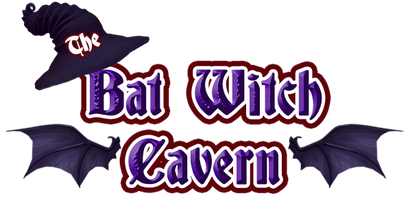Over the decades, North America has become a melting pot of diverse cultures, ideologies, and beliefs. One spiritual path that has significantly gained traction in the region is Wicca, a contemporary pagan, witchcraft religion. Emerging in the mid-20th century England, Wicca quickly found its way across the pond and firmly rooted itself within the fabric of North America's religious landscape.
 Available for Sale By Clicking Image
Available for Sale By Clicking Image
Unraveling the Origins
Tracing the roots of Wicca takes us back to Gerald Gardner, a British civil servant, who introduced the religion in the mid-1940s. However, it wasn't until 1963 that Wicca crossed the Atlantic, with English-born Raymond Buckland and his wife Rosemary, leading the charge.
The Bucklands, initiated in England by Gardner himself, established the first American Gardnerian coven, marking the formal inception of Wicca in North America. Their home on Long Island, New York, often referred to as the "Witch Museum," housed various witchcraft artifacts and became a hub for Wiccan education and practice. From here, Wicca began to spread across North America, developing different strains and traditions in response to the continent's cultural diversity.
Different Strains of North American Wicca
The spread of Wicca in North America led to the formation of different traditions, which can be broadly classified into two categories: British Traditional Wicca and Eclectic Wicca.
British Traditional Wicca, adhering to the Gardnerian and Alexandrian traditions, maintains a strict lineage and emphasizes initiatory progression. Gardnerian Wicca, named after Gerald Gardner, maintains a dualistic worship of a Horned God and a Mother Goddess. Alexandrian Wicca, developed by Alex and Maxine Sanders, while similar to the Gardnerian tradition, allows for more eclectic elements.
Eclectic Wicca, as the name suggests, is a non-dogmatic, non-hierarchical approach that allows practitioners to draw upon multiple sources and traditions. One of the most popular eclectic traditions in North America is Dianic Wicca, founded in the 1970s by Zsuzsanna Budapest. This tradition centers on the worship of the Goddess and incorporates feminist ideals, often excluding men from rituals.
The Journey Towards Acceptance
Despite its growth, Wicca, like many new religious movements, faced significant challenges. Wiccans were often misunderstood and misrepresented, resulting in legal issues and social stigmatization.
However, the 1980s marked a turning point for Wicca in North America. Prominent cases like Dettmer v. Landon (1986) paved the way for legal recognition, classifying Wicca as a religion protected under the First Amendment. The following year, the American military officially recognized Wicca, allowing its practice within the military and Wiccan symbols on gravestones in military cemeteries.
Alongside legal recognition, literature also played a vital role in bringing Wicca to mainstream consciousness. Scott Cunningham's "Wicca: A Guide for the Solitary Practitioner," published in 1988, provided an accessible introduction to Wicca, and further increased its popularity.

Available for Sale By Clicking Image
The Internet Age and Wicca
With the advent of the internet, Wicca experienced unprecedented growth in the late 1990s and early 2000s. The virtual world provided a platform for practitioners to connect, exchange ideas, and spread their beliefs. Websites, forums, and later, social media, allowed for a more inclusive, global Wiccan community, which appealed to those seeking a spiritual practice outside traditional religious structures.
In fact, the Pew Research Centersurvey in 2014 reported that the number of individuals identifying as Wiccan or Pagan in the United States had reached over a million. A figure that undoubtedly has risen since, given the subsequent surge in interest in occult and pagan traditions.
Wicca Today: A Growing Presence
Today, Wicca has a significant presence in North America, enjoying both legal recognition and increasing societal acceptance. Wiccan Sabbats are openly celebrated, Wiccan books are easily accessible, and Wiccan symbols can be seen on jewelry, in film and television, and at spiritual festivals across the continent.
However, the story of Wicca in North America isn't just about growth in numbers. It's a story of evolving traditions and expanding inclusivity. For instance, there's an increasing acceptance of queer identities within the Wiccan community, with traditions like the Minoan Brotherhood providing a space for gay and bisexual men.
Wicca's core tenets—respect for nature, emphasis on personal experience, and a focus on the feminine divine—resonate with many contemporary societal values. As a result, Wicca continues to appeal to those seeking a flexible, inclusive spiritual path in an increasingly complex world.

Available for Sale By Clicking Image
Conclusion
In summary, the history of Wicca in North America is a fascinating journey of faith, perseverance, and evolution. From its modest beginnings in the home of the Bucklands, it has grown into a religion that commands a significant presence in the religious landscape of North America.
Though Wicca's roots can be traced back to 20th-century England, North American Wicca has evolved in its unique way, reflecting the continent's diversity and spirit of openness. In the process, it's created a dynamic, vibrant tradition that continues to flourish, offering a rich spiritual path for its followers, and adding to the fascinating tapestry of North American religious history.
As we look forward, we can only anticipate that Wicca's journey in North America will continue to be one of growth and transformation, leaving an indelible mark on the continent's spiritual journey. Wicca's history has demonstrated that religions can adapt and evolve with society, showing us that our shared spirituality, much like the continent itself, is a living, changing entity.


























